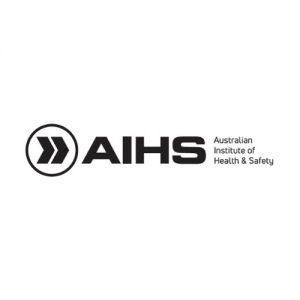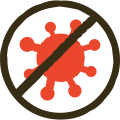Safety News: AIHS Calls for Free Rapid Antigen Testing for Australian Workers and Stronger National COVID Workplace Guidance
AIHS Media Release: 17th January 2022
The Australian Institute of Health and Safety (AIHS) has urged national leaders to provide better guidance for businesses to keep workers safe and healthy, and for the Australian Federal Government to provide access to Rapid Antigen Testing (RAT) for workers.
Summary of The Release
Federal and State Governments have been called on to implements a new national approach.
There are too many different rules around what a high-risk work setting is, vaccination requirements, when to wear masks and what to do if a worker contracts COVID.
The definition of a high-risk work setting should be agreed on nationally.
The current guidance (issued by Safe Work Australia, last updated on April 29, 2020) only includes advice on risk assessment, physical distancing, hygiene and cleaning. With the introduction of contact tracing, close contact definitions, COVID-19 Vaccines and rapid antigen testing, this advice is now out-dated and is in dire need of an update.
New guidance needs to include:
- How to identify high-risk work settings, and implement safe work practices in those settings including the use of p2/N95 masks
- How to consult with workers and implement a vaccination policy
- The role of Rapid Antigen Testing (RAT) and how to use those tests to make the workplace safer
- How to respond to a worker who is COVID positive
- The mandatory notification requirements for a worker who is COVID positive in the workplace
New guidance should be released through a range of channels in appropriate community languages.
AIHS Calls for Free Rapid Antigen Tests for Australian Workers
The Federal Government has also been called on by AIHS to supply Australian workers with free Rapid Antigen Tests, statinge “workers exposure to COVID-19 is a foreseeable risk that must be managed”.
AIHS Chairperson, Naomi Kemp has stated in the release:
“The exposure of workers to COVID-19 is a foreseeable risk that must be managed. The supply of free RATs would enable workers to contribute to the management of workplace infection risk, especially in high-risk settings” she said.
“The federal government has signed contracts worth tens of millions for the supply of rapid antigen tests this week, but it is not yet clear where the tests will be deployed or when they will arrive for use. They have made a conscious decision to remove a wide range of population-level risk controls against COVID-19 and promoted increased reliance on Rapid Antigen Testing as a frontline risk management tool. They have a clear responsibility to follow that up by making those tests available to businesses and workers, especially in high-risk settings.”
Summary of CEO David Clarkes Statements
The CEO of the AIHS, David Clarke, has also added to the release, discussing the responsibility State and Federal Governments have in this time. His statements are summarised below:
- In the last 12 months, commentary and policy related to the management of COVID-19 in the workplace has been increasingly driven by politics rather than evidence or expert health advice. This does not help businesses keep workers safe
- Policy makers across the country have a responsibility to provide clear and up to date directions
- Businesses need better information on how to deal with COVID-19 in 2022 with the new public health rules in place
- Governments must do better than only talk about individual responsibility of the citizen
- Businesses still have the responsibility to reduce the likelihood of work-related injury and illness and manage the transmission risk of the Omicron variant in workplaces. We shouldn’t simply be allowing it to spread amongst our workplaces just because it is more transmissible than previous variants
- We still and always have had legal and ethical responsibilities to protect workers


